“Maybe the best thing that I’ll ever do is help somebody else, and I’m okay with that. That’s the whole point,” says Karl Dehmelt, ’18, offering a small shrug while a smile stretches across his face. Humbleness and helpfulness are two qualities that 19-year-old Karl has learned to run with throughout his life. He’s not one to brag about his accomplishments or seek attention for the work that he’s completed. Rather, he has learned to ground himself with hard work and modesty. As a sophomore in college, Karl has produced two published novels with more in the works, of course. This isn’t a small task in the slightest, yet Karl views his work with simple gratefulness as to what he’s been able to achieve.
If it weren’t for the hardships that Karl has been forced to undergo, he wouldn’t be the person that he is today. In September of 2010, during his freshman year in high school, Karl’s mother was diagnosed with a pulmonary lung infection, called Mycobacterium avium-intracellulare (MAI). Little did Karl’s family know, however, that MAI was acting as a mask for the cancer that soon spread throughout his mother’s body. The cancer had already entered into stage four by the time it was detected, and a mere month later, she passed away. His mother had a difficult time keeping up with her health, because at the time she and Karl’s father were going through a divorce. Karl, an only child, was left to struggle with the anxiety and depression that surrounded these events. As a result, he experienced a lack of work ethic, determination and discipline, which were soon about to change for the best.
During Karl’s junior year in high school, he began writing “The Hard Way Back to Heaven,” his first published novel and introduction into the literary world. “The Hard Way Back to Heaven” is constructed around the difficult, but real-life events that Karl was forced to experience during his high school days.
It’s a true story that has adopted different artistic styles and character names in order to protect the identities of his friends and family, as this privacy is something that Karl is especially cautious about. For example, he refers to himself as “Alex” throughout the book and reverses the genders of his parents to portray his father, rather than his mother, as being diagnosed with cancer. Karl’s goal was to change a few details, while keeping the essence and backbone of the story the same. “The Hard Way Back to Heaven” was written in 13 days, though the speed of Karl’s writing doesn’t nearly reflect the quality of his work. While Karl wants to write as efficiently as possible, he also wants it to be done right. Quality is extremely important for this young author, and he won’t submit anything that falls short of his best work.
Karl entered into freshman year at Loyola in 2014, and by October, Apprentice House Press, a student-managed book publishing company based right here out of Loyola, picked up “The Hard Way Back to Heaven.” Ten revisions and a 23,000-word cut later led to the publication of Karl’s first fictional story. Having expected rejection from Apprentice House, he was ecstatic upon hearing the news.
A fire was lit within Karl, one that pushed him to continue working on his second book, “The Theory of Talking to Trees”, which is set to be released this upcoming October. This novel is more fictionally based than Karl’s first book, but still has real life inspiration. The plot is inspired by one of Karl’s close friends, a mentally troubled, Canadian resident, who he happened to meet online. Although Karl’s friend was eight years older than him, they got to know each other and quickly bonded through their mutual love for writing (for the sake of privacy, this person’s true identity won’t be revealed). Karl’s friend sadly committed suicide after a long battle with mental illness. In “The Theory of Talking to Trees,” Isaac, the character who’s based around Karl’s friend, is saved one day on the streets of Baltimore by a man named Stephen, who has lived a hard, but affluent life. As the story progresses, Steven ends up losing more than he ever thought possible, and he and Isaac undergo these hardships together.
“The Theory of Talking to Trees” isn’t an easy read, but it is a story about resilience, passion, and pushing through the challenges that life throws your way, which leaves readers inspired. Karl describes this book as, “Unapologetically dealing with life’s realities.” Karl claims that the message that embodies “The Theory of Talking to Trees” was never meant to be the main focal point, it happened quite organically. Issues of race, homelessness and mental health embody the book. As a tribute to his late friend, all of Karl’s author royalties made from the book are going straight towards the Canadian Mental Health Association (CMHA). Making money has never been Karl’s overall goal; he simply wants to help people through his writing. Both “The Hard Way Back to Heaven” and “The Theory of Talking to Trees” deal with raw and true events, and Karl refuses to sugarcoat anything. “I’m going to write what I’m going to write” says Karl adamantly.
Karl is paving the way for young adult writers everywhere, since he’s the youngest person in the history of Apprentice House to have a novel published, let alone two books back-to-back. This may seem like an unthinkable task to achieve at his age, but not to Karl. He continues to read and write as much as possible, in order to gain motivation for his own work. Karl finds that reading the work of others, like George Orwell and Stephen King, is a great way to become inspired. Being able to see how different people work and what they’re passionate about serves as motivation for Karl. “There’s no one blueprint to do anything,” explains Karl. “It’s so individualistic.”
In addition to taking six classes this semester, Karl works 14 hours a week at Loyola’s Writing Center, and aids in editing for the Apprentice House. Whenever Karl has a break in his schedule, he’ll write. On Friday afternoons, when campus is practically empty, he’ll set aside time to venture to the Writing Center and work on his pieces. He is a meticulous planner and will say to himself, “Okay, I need to get these three things done today in order to stay sane.” He pays close attention to using all of the hours in a day; in other words, he’s a well-oiled machine. Thankfully for Karl, he doesn’t view writing as work, but as a hobby. And when he gets an idea, it’s hard for him to push it away.
At this rate, Karl has the potential of producing a book for each of his four years of college. And he has the guidance of many people to help him achieve this. “This is never a one-person show,” says Karl. Family members, fellow peers who work at Loyola’s Writing Center, close friends and professors have helped Karl in this exciting process. The whole reason that Karl writes is to be able to show his family and friends what they have helped him accomplish. He claims that showing these people his final products is his way of saying, “Hey, your investment has been returned.”
Karl will continue to write and constantly push himself to improve his work. “The Hard Way Back to Heaven” is available for purchase through Barnes & Noble and Amazon, and “The Theory of Talking to Trees” is due for release as of October 2016. Wonderfully enough, Karl continues to keep us guessing as to what his next move will be. “Stay humble, stay close to the ground, and be cautiously optimistic,” advises Karl.







































































































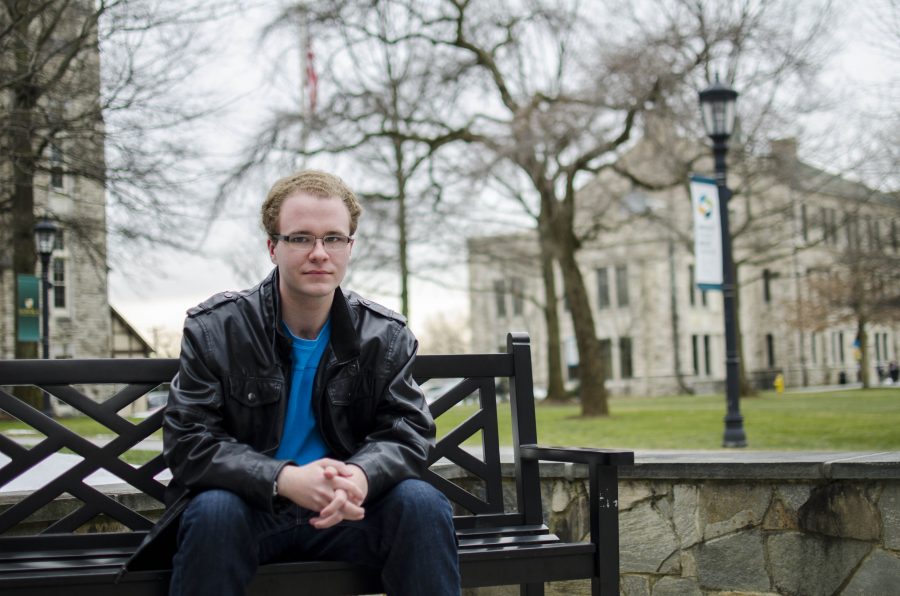
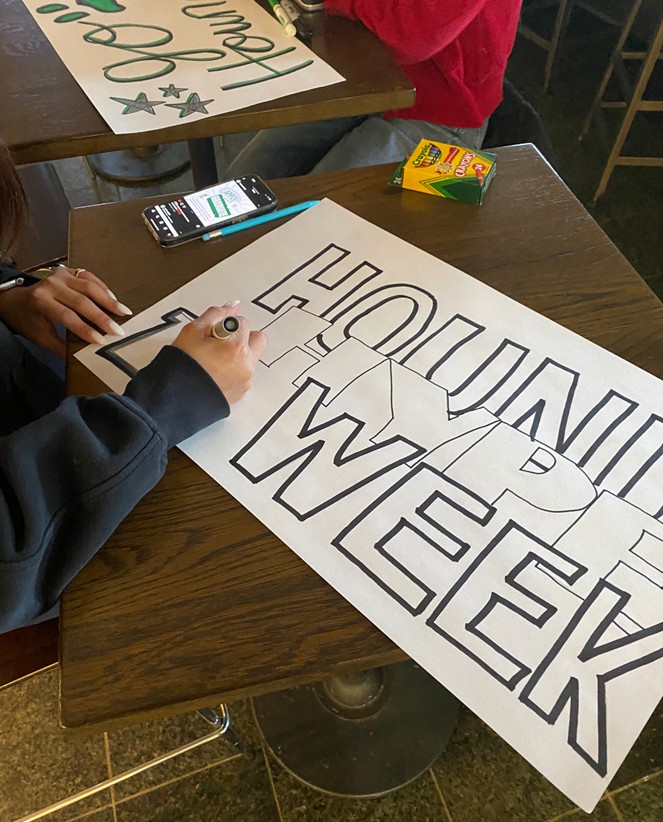
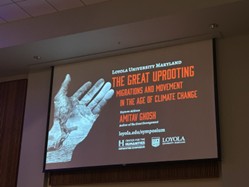
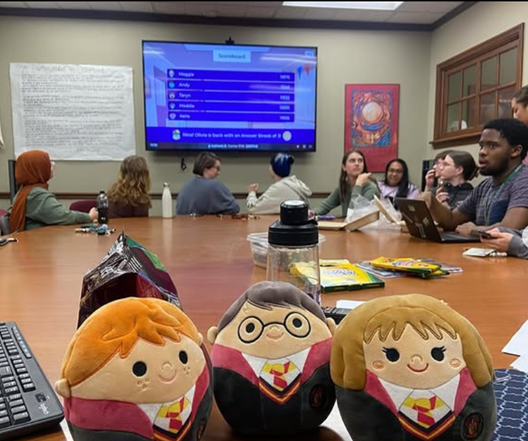
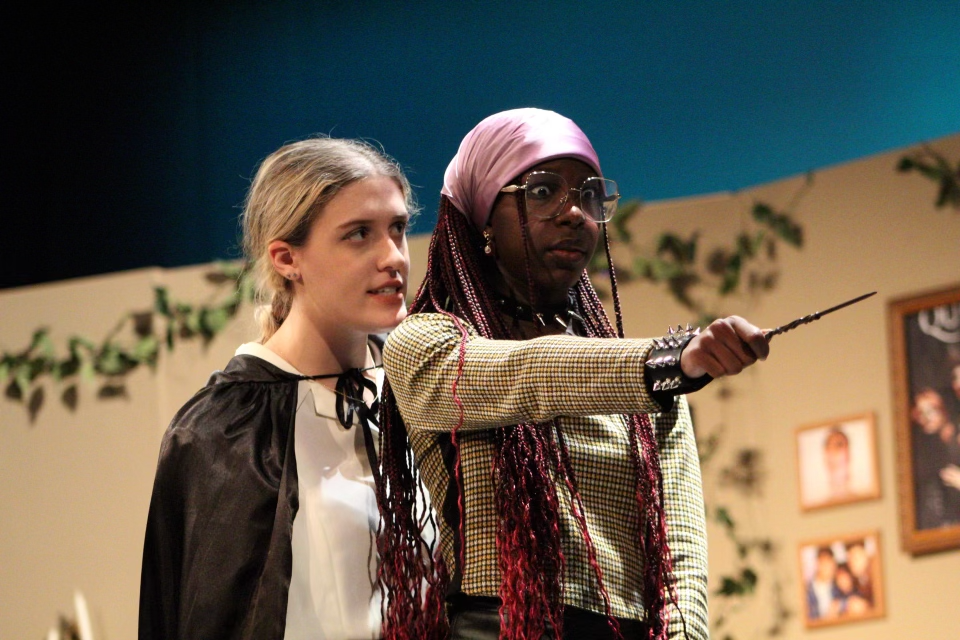
Ken Lundberg • Feb 25, 2016 at 2:43 pm
Loved reading this. What an incredible story! The next S.E. Hinton! It’s obvious that Lundberg took her time with the subject and didn’t settle for some pat answers. It’s also obvious she asked good questions and/or got this guy talking somehow! An inspiring author profiled in an inspired way by your arts/society staffer. Full disclosure: i’m Georgia’s dad but i speak the unbiased – well, maybe a little – truth.